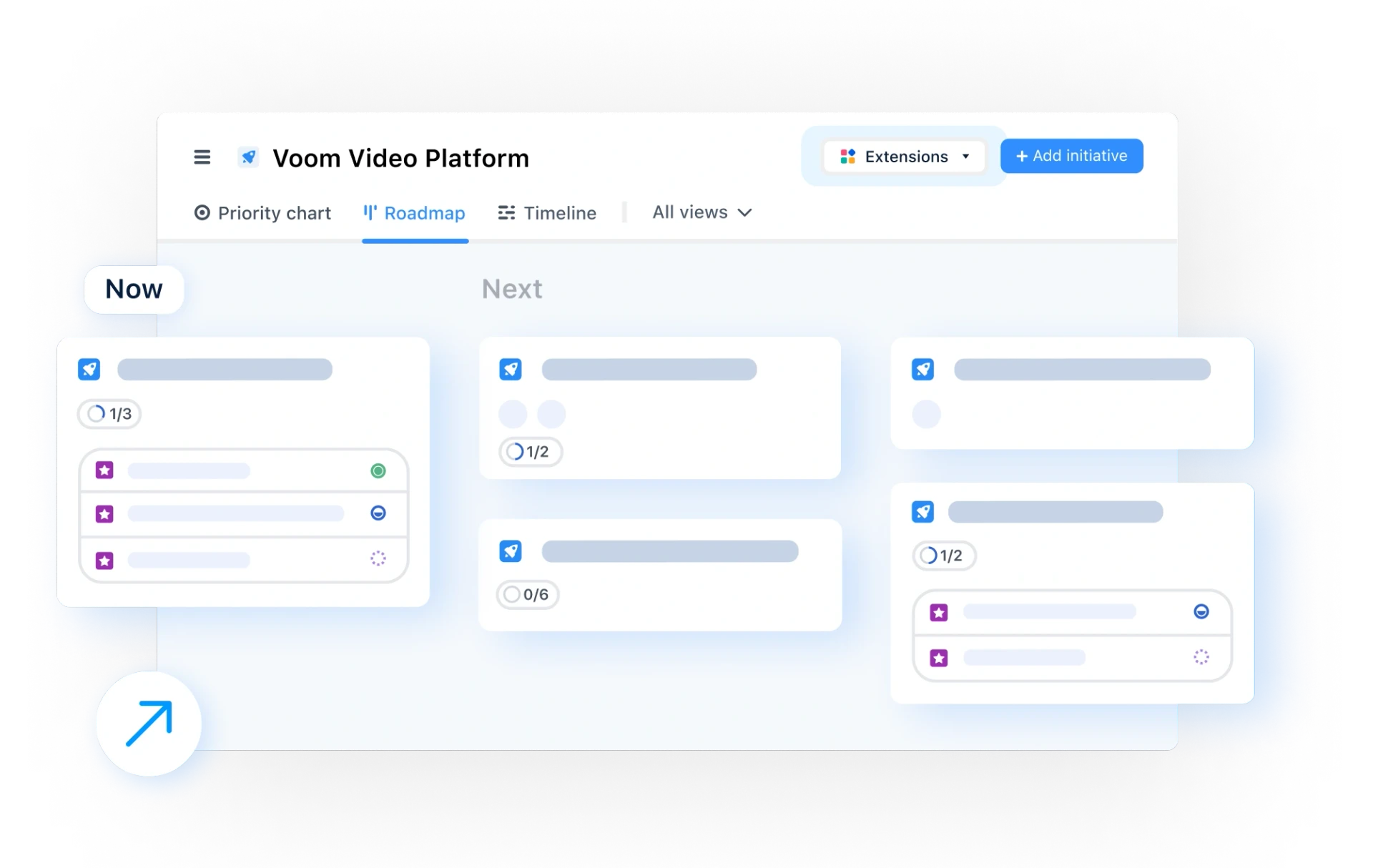
DevOps is a software development process that involves close coordination between the engineers who code the software and the operations team who are responsible for its public release.
Traditionally, these two teams will work as separate entities but, as with many traditional practices, that creates friction which can negatively affect the product quality. So enter DevOps: a more agile approach designed to reduce friction, bringing the two departments together throughout the development process.
This allows the operations team to test and review the product at various stages. Rather than waiting until the very end of development, bugs or potential workflow issues can be flagged far earlier in the process, allowing the development team to fix and improve before it becomes complicated and costly to fix.
What’s more, as with any other development process, a roadmap can be extremely valuable to a DevOps team, especially if they’re using the process for the first time. Creating and utilizing a roadmap will offer a clear blueprint for the product goals, keeping both departments aligned throughout. Nice!
Benefits of using roadmaps in DevOps in 2022
Those who have read our Ultimate Guide for Roadmapping will already be aware of the benefits that come with using roadmaps. However, we didn’t dive into the specific benefits it can offer DevOps teams, so let’s take a closer look.

DevOps roadmaps give teams a granular view of the process
A roadmap gives the entire team a high-level, strategic blueprint of the company’s goals for the product. It’s an essential reference point that aligns developers, product owners, and stakeholders throughout the journey.
Despite its benefits, though, an overall product roadmap may not be enough for a DevOps team. If a roadmap offers a high-level view of the goals, this can make it difficult to organize the development and operations teams. A DevOps roadmap breaks down the process and focuses on items that are relevant to the two teams.
DevOps roadmaps align both teams
A DevOps roadmap helps both teams better organize their time and prioritize their work. Each team can see when the other will be delivering something that needs its attention.
By coordinating work, and dependencies between the engineering and operations teams, a company can streamline its development process. This allows teams to quickly create new products with fewer issues that normally come with teams who aren’t on the same page.
DevOps roadmaps enable continuous improvements
DevOps and Agile share many characteristics. Both approaches help bring teams together to effectively communicate and collaborate. This helps them deliver incremental improvements on a regular basis.
A DevOps roadmap offers a valuable reference point that represents the team’s priorities for the upcoming timeframe. This allows them to plan and prioritize work items in a way that provides value to the product while ensuring there is plenty of time to implement continuous improvements.
How to create a DevOps roadmap
A DevOps roadmap looks similar to other roadmaps, which is helpful for those new to the DevOps approach. It’s designed to be simple and easy for everyone to understand. And to achieve that, a DevOps roadmap should contain these key components:
Lanes
Lanes (also referred to as swimlanes) split important categories on your roadmap to indicate divisions of responsibility. Each of these categories represents the company or product’s division of work such as product functions, teams, initiatives, and so on.
Containers
Containers represent the most important categories of your roadmap with which all the other items get connected. You can use containers to showcase different projects, themes, subjects, or any other items of your roadmap’s initiative.

Bars
Bars represent other important items that have been strategically grouped under appropriate containers. These items are initiatives that will be connected to the main theme of your roadmap.
Timelines
As we mentioned in our Ultimate Roadmapping Guide, it’s usually best to avoid using specific dates or deadlines for items in your roadmap. Instead, focus on the important strategic aspects of your initiative — baseless deadlines shouldn’t tell you what to do when, prioritization should.
That being said, a rough guide can be helpful to keep teams on track. Including a vague time frame that is broken down into sprints and milestones ensures the development process runs smoothly.
Legends
A roadmap should offer a fast and clear view of how a project is progressing. Color-coding items on the roadmap is a simple way to differentiate items as each color will represent a different category.
The legend will show which color represents which category without the viewer needing to dive deeper. For example, the colors could represent an item’s priority level or completion status.
>> See here for more roadmap design tips.
Completion percentage
It’s important to keep your roadmap up-to-date as the project progresses. While color-coding and legends can help convey this information, some stakeholders are unlikely to deep-dive your roadmap to see how everything is going.
An overall completion percentage can keep those busy higher-ups in the loop and happy.
Tags
Tags help anyone looking at the roadmap to easily find relevant tasks. Say one of the development team needs to look for items related to UX design, they can use the UX Design tag to quickly find them. Now that’s teamwork!
Get your roadmap started right with airfocus
The DevOps approach is perfect for companies looking to transition to Agile methodologies, however, it can be tough to switch up traditional processes. Our blog is full of incredible guides and handy tips to help you make that transition easier.

Tomas Prochazka

Read also

Build great roadmaps

Experience the new way of doing product management






